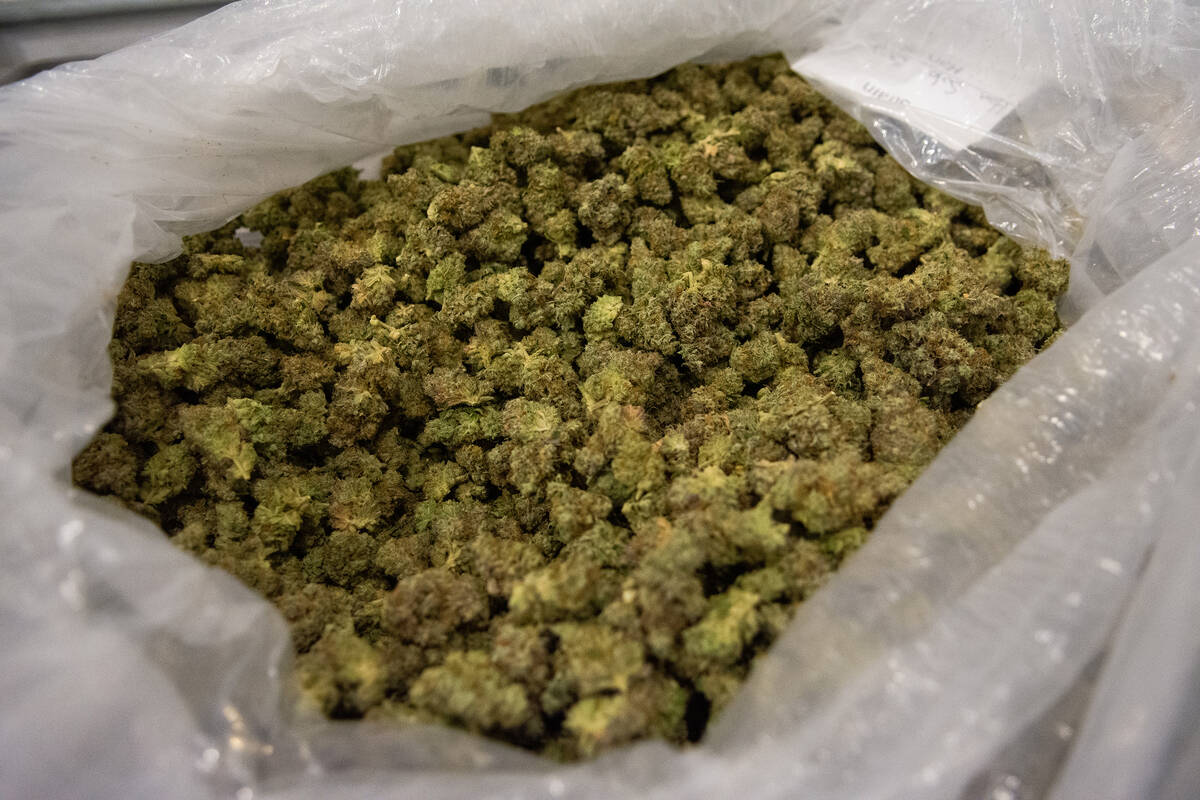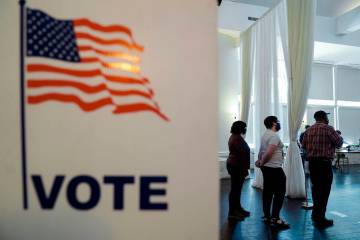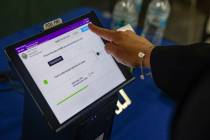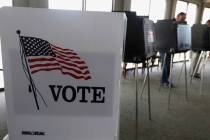Black market, hemp products biggest challenges to cannabis industry
One of the biggest challenges facing the burgeoning cannabis industry – both in Nevada and nationwide – is the illegal market, experts say.
Although it’s hard to know for certain exactly how much business the illegal cannabis market is drawing away from the legal one, experts say it could threaten the future of legal cannabis as the industry begins to grow into adolescence.
“The illicit market is an existential threat to the regulated market,” said John Hudak, director of the Maine Office of Cannabis Policy. “And every time we allow law enforcement to look the other way on these operations, we are hurting people who are pouring hundreds of thousands of millions of dollars into their own business.”
Hudak’s remarks came during a panel discussion about the state of the cannabis industry Tuesday, hosted by the University of Nevada, Las Vegas Cannabis Policy Institute.
Panelists said part of the illegal market’s continued success is partly due to its lower prices. The legal market has regulatory costs and taxes to contend with.
Robin Goldstein, director of the Cannabis Economics Group at the University of California, Davis, said that although there are some consumers who care about consuming safe weed from a licensed dealer, most consumers care about finding the “cheapest thing that satisfies their needs, and that’s good weed.”
“The difference between the legal price and illegal price is the main determinant of whether the legal market is able to have a substantial share,” Goldstein said. “If it’s twice as much to buy legal weed as illegal weed, very few people are going to buy the legal weed.”
The illegal market is a threat to Nevada’s cannabis industry, said Nevada Cannabis Association Executive Director Layke Martin during a Wednesday interview with the Review-Journal.
But Nevada’s legal market is different from other states, Martin said.
Las Vegas presents a unique opportunity for the illegal market. Licensed companies are only allowed to deliver to private residences, but tourists aren’t always aware of that restriction, Martin said.
Tourists will order weed to be delivered to hotels or resorts, often unaware that the company who delivered it wasn’t licensed.
“Certainly there’s a demand for that, and that demand has been met by unlicensed companies,” Martin said.
Another threat
Cannabis products sold on the black market aren’t experts’ only concern.
Intoxicating hemp products, which include Delta-8 and other products that contain intoxicating levels of psychoactive substances, were legalized nationally through a loophole in the federal farm bill in 2018.
The products have been banned in some states, citing concerns about the products’ safety because they are largely unregulated.
“They are not being tested in the same way that the cannabis products are tested. They’re also not age gated,” Martin said. “There isn’t an age limit, and that’s how these are ending up in the hands of people who are minors.”
Nevada was among those states to ban the products early on. In 2021, lawmakers passed legislation to make it illegal to produce, distribute or sell a synthetic cannabinoid, including Delta-8.
The law has stopped some of the influx of these products into Nevada, Martin said. But it hasn’t stopped the sale of these products completely.
The illegal sale of these products threatens public safety, Martin said. But it also threatens the state’s legal cannabis industry.
Judah Zakalik, a board member of the Cannabis Policy Institute and a co-owner of cannabis cultivation facility Zion Gardens, called the sale of those products “quasi black market.”
“It’s scary because they don’t have the regulations and the cost that [legal producers] have,” Zakalik said during the Tuesday panel. “It’s an existential threat.”
Contact Taylor R. Avery at TAvery@reviewjournal.com. Follow @travery98 on X.





























